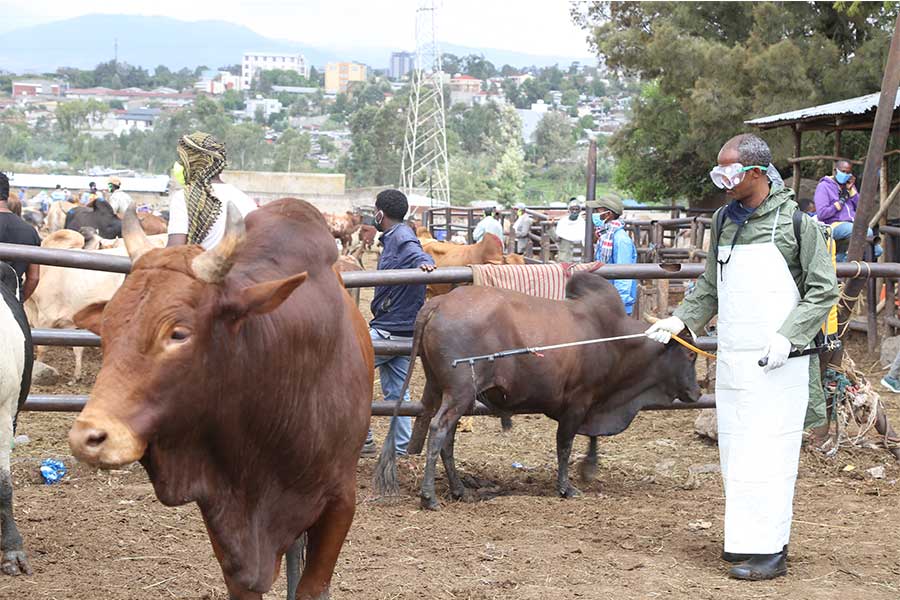
Fortune News | Apr 17,2020
The Easter holiday is around teh corner, and Addis Abeba already gleams with fresh paint. Across the capital, butcher shops that stayed dark during the two-month fasting season lift their shutters, walls newly coated in white and banners pledge on every doorway: “We’ve started anew.”
From Lebu Mebrat Hayl and Haya Hulet to Saris, Summit, Fiyel Bet and Ayat, the colour is more than decoration. Municipal rules treat whitewash as proof of cleanliness, while traders hope the bright surfaces tempt customers who have spent weeks eating vegetables and lentils. The air already smells of "berbere" and charred fat, a promise that the long season of lentils is almost over, and painters balance on shaky ladders to finish before the first holiday rush.
Not everyone is persuaded, though.
“It’s just marketing,” said Yonas Temesgen, 35, a self-styled meat devotee and small business owner.
When a kilo cost roughly 800 Br, he would spend as much as 1,500 Br a day sampling raw tibs around town. Now, he keeps his visits for holidays and family outings. Yonas drifted between "Qurt bets" that serve scarlet strips with fiery "awaze" and "kitfo bets" where buttered, pepperflecked mince is piled high.
“They paint the wall, change a few chairs and call it new,” he scoffed. “But the service is often no better.”
A handful of proprietors have decided that cosmetic work would not cut it. On African Avenue, Bole Rwanda neighbourhood, Wendmamachochu Butcher & Bar was hidden behind corrugated iron while crews tore out the old dining room. At Bisrate Gebriel on Libya St., the Kebede Gebrewold franchise was undergoing its own metamorphosis: gypsum ceilings, polished concrete floors and pendant lighting were replacing the dark timber.
“For this holiday alone, we'll slaughter up to four bulls,” said Belete Getu, the general manager, his boots crunching through plaster dust.
Dine-in meat was pegged at 1,800 Br to 2,000 Br a kilo; takeaway orders cost 600 Br to 1,000 Br a kilo. More than 20 staff members, who had been idle for two months, are back dusting tables as electricians finish wiring. Polished brass hooks gleam where sides of beef would soon hang, and a new glass chiller hums in the corner.
Elsewhere, the mood was subdued. In a narrow stall by the Saris junction, Gemechu Amha, a seven-year veteran butcher, ran a whetstone along his knife and counted the slow hours.
“It used to be that you could sell an entire bull in one day,” he told Fortune.
Fewer consumers venture out after Lent, and steep prices feel unreal. Gemechu recalled working near the Casanchis area, where high-end houses asked 3,500 Br a kilo, yet still formed queues.
“People who love meat care more about quality than price,” he shrugged, though quality itself has become harder to afford.
He blamed rising transport costs, feed shortages in drought-stricken highlands, and the weak Birr, which makes imported feed dearer, driving up every stage of the supply chain. Middle-income families are feeling the squeeze.
Kidus Abera, a 36-year-old accountant employed by the government who earns 16,000 Br a month, now relies on "Qircha", the communal slaughtering tradition shared among neighbours, rather than the butcher's counter.
“When I do go [to the butcher's shop], it’s only because my kids beg,” he said.
He blamed the broader cost-of-living surge.
“It’s not just meat. Everything has doubled," said Kidus. "As a parent, meat has become an indulgence, not a habit.”
Relief, of a sort, lies behind two green shipping containers behind the Nifas Silk Lafto District's Woreda 10 office. The Integrated Consumers Association pays 7,000 Br a month to rent each container and has stocked 14 bulls for the season. Inside, clerks hack ribs on a stainless bench while a chalkboard lists prices of 450 Br to 520 Br a kilo, about one-fifth of commercial rates.
“We aim to support both merchants and consumers,” Kibret Admasu, the general manager, told Fortune, as the queue snakes across the courtyard.
Tsion Hotel has chosen elegance over discounting. Its General Manager, Solomon Adilew, has ordered new curtains, hired a trio of singers to perform religious hymns, and tailored traditional uniforms for his waiters. The hotel trimmed its payroll by 10 to 20 during the fast. He was hiring again after buying 10 bulls at 150,000 Br to 200,000 Br each. pre-holiday plates were priced between 1,500 Br and 2,000 Br a kilo.
“We're taxed at the whim of the Addis Abeba Revenue Bureau,” Solomon complained.
Sewnet Ayele, communications head for the Bureau, rejected talk of arbitrary levies. According to him, no separate tax bracket exists for meat houses, but the real problem is paperwork. Many butchers buy bulls in cash at dawn markets and receive no official receipt, forcing assessors to guess turnover. A new voucher system is supposed to plug the gap.
“This year, we've received many complaints,” Sewnet told Fortune. “Ninety-seven per cent have been addressed.”
Ayele Sahlu, general manager of the Addis Abeba Butchery Association, insisted the model still punishes merchants. Taxes are calculated on the full weight of a bull, even though only a third becomes saleable meat. The Association’s 1,300 members enjoy some protection, though. If a vet rejects an animal, they receive up to 140,000 Br, and fire damage brings as much as 100,000 Br.
“Quality defines a butcher house, not just price,” said Ayele. “Workers must also carry valid health certificates.”
Rulekeeping heightened in the fortnight before Easter Day. Inspectors from the city's Food & Drug Authority scour the districts; last year, they shut down 144 unauthorised butcheries. Oversight continued at the municipal abattoir, where the Addis Abeba Abattoirs Enterprise expected to process more than 6,000 animals this Easter, nearly twice 2024’s tally. The plant employs 1,000 permanent and 260 temporary workers, deploys 40 refrigerated trucks and boasts a 60 million Br processing machine designed to reduce waste.
A standard slaughter costs 1,470 Br for a bull and 160 Br for a sheep, fees that most traders pass on to consumers. Yet, many independent butchers still slaughter outdoors under tarpaulins, risking fines and spoilage, because they cannot afford the official fees.
Parallel reports come from the Farmers & Urban Agriculture Bureau. According to Tsega Lema (PhD), field teams fined 174 shops last year, collecting 2.7 million Br. Backyard slaughtering is banned, though an exemption exists for "Qircha" during major holidays.
“We start inspections 15 to 20 days before the festival,” he said.
Economist Wegene Markos (PhD) views the whitewash slogan as a gimmick that would fade if novelty is not matched by substance. The two-month hiatus, he says, is built into business plans; smart owners should use it to upgrade hygiene and supply chains.
“We've abundant livestock, but the meat quality is often substandard,” he said. “Different vendors can charge different prices, and that’s fine. But, what finally matters is quality.”
Night descends, and the city’s renovated butcheries glow under sodium lamps, white rectangles against the diesel haze. On Libya St., Belete checked pendant bulbs, while in Saris Gemechu wiped his blade and hoped tomorrow’s rush would make up for the lean weeks. At the cooperative containers, clerks tie the last parcel with a string.
Soon, tens of thousands of residents will queue before dawn for their first bite of postfast flesh, testing whether the promise on every wall – clean paint, fresh start, meat reborn – rings true.
PUBLISHED ON
Apr 19,2025 [ VOL
26 , NO
1303]

Fortune News | Apr 17,2020
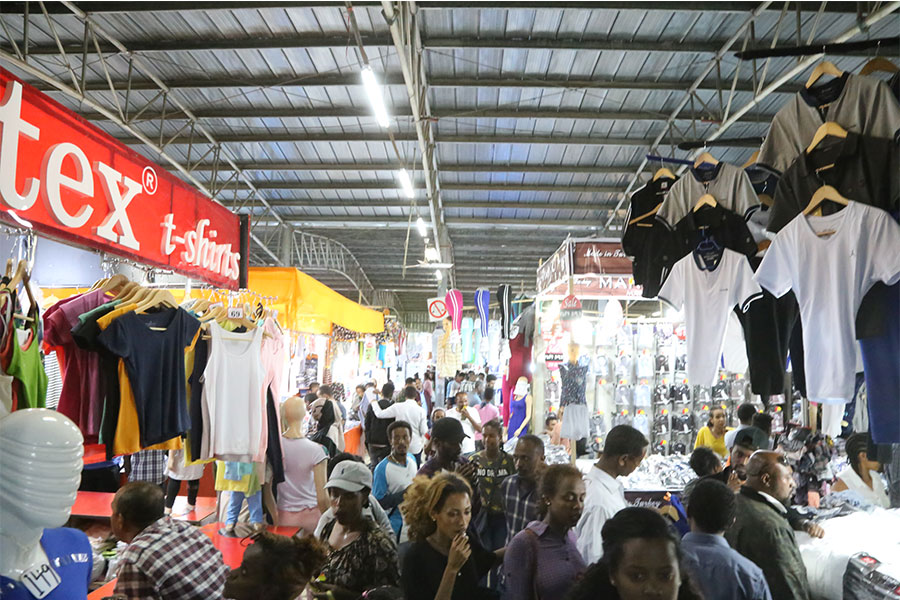
Featured | Apr 20,2019
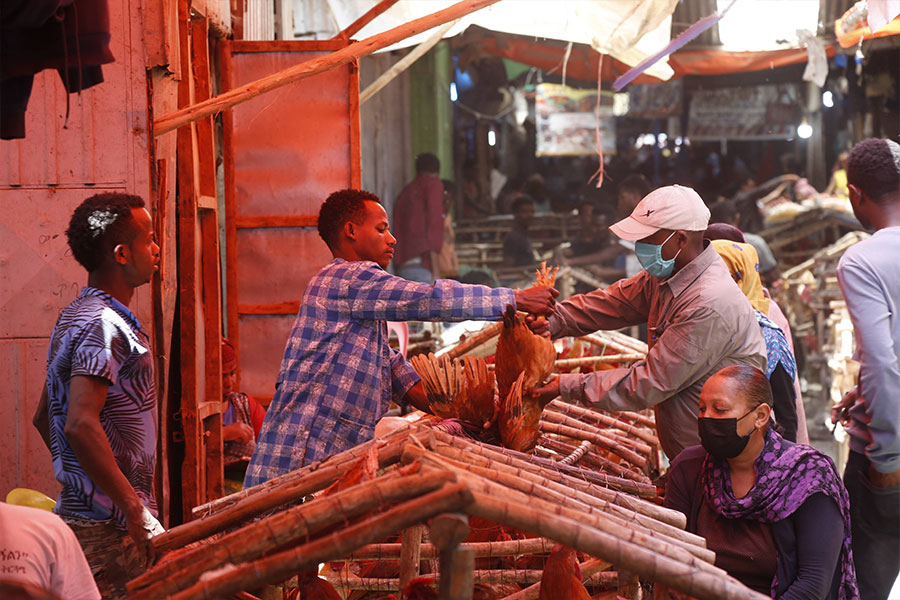
Agenda | Apr 22,2022
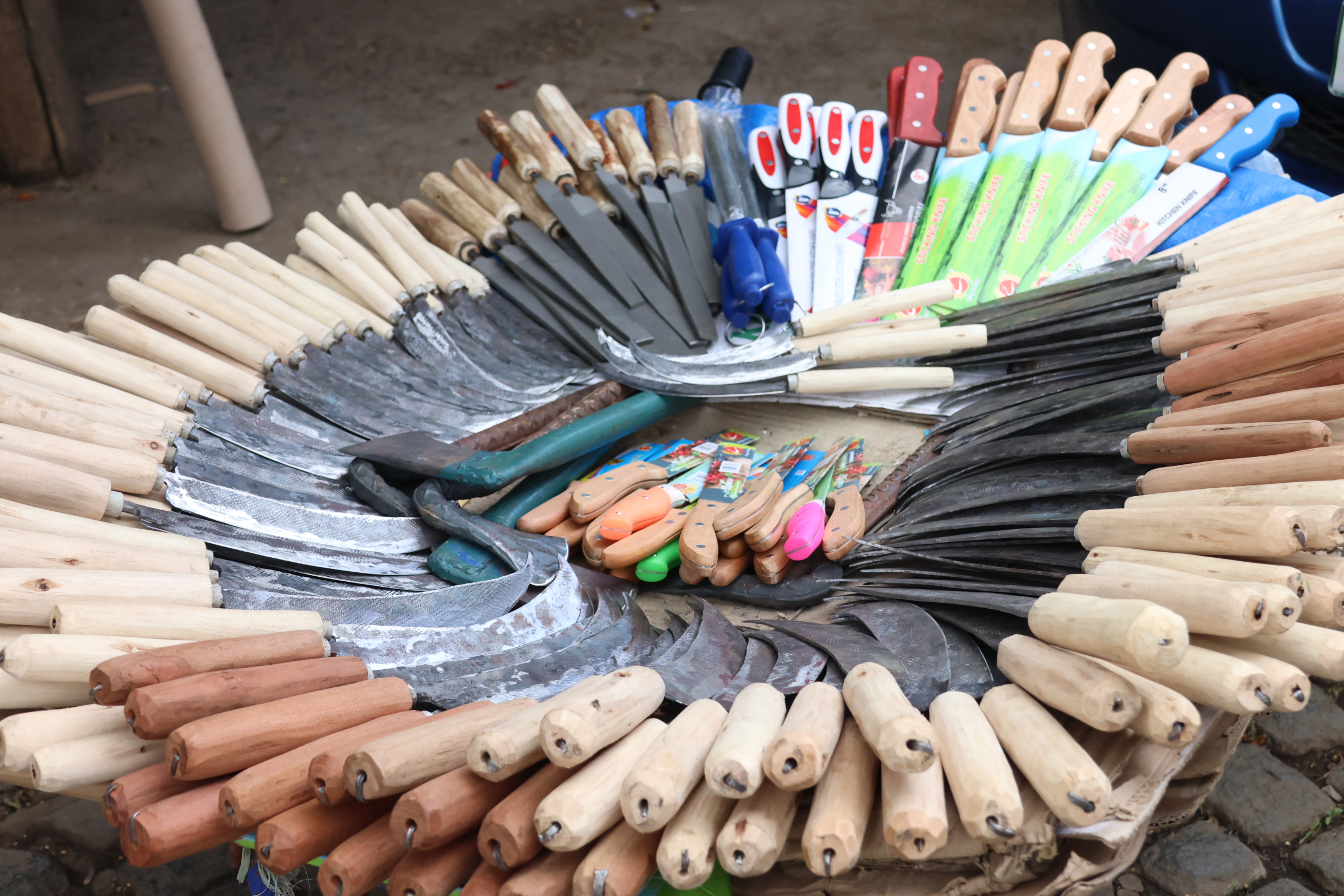
In-Picture | Apr 27,2025
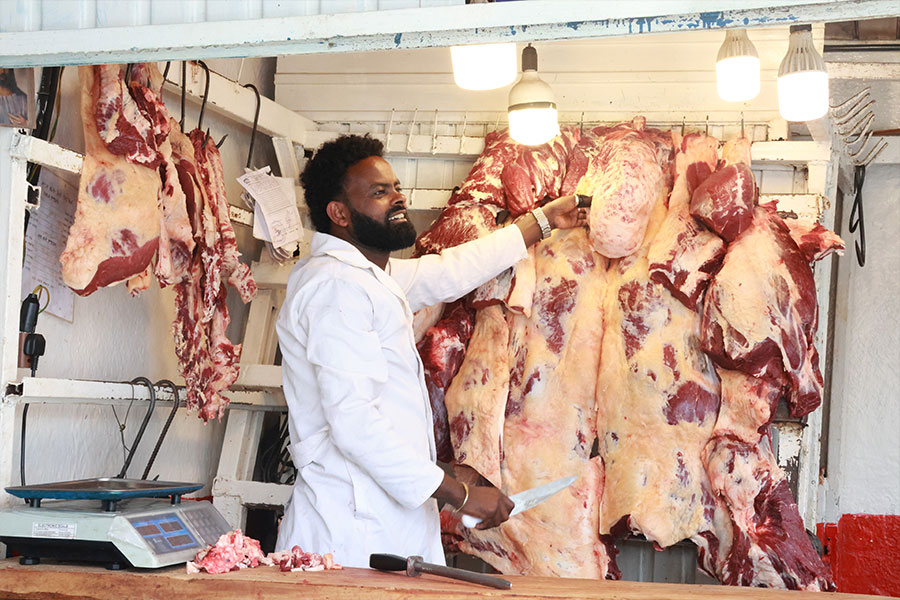
Featured | Sep 10,2023
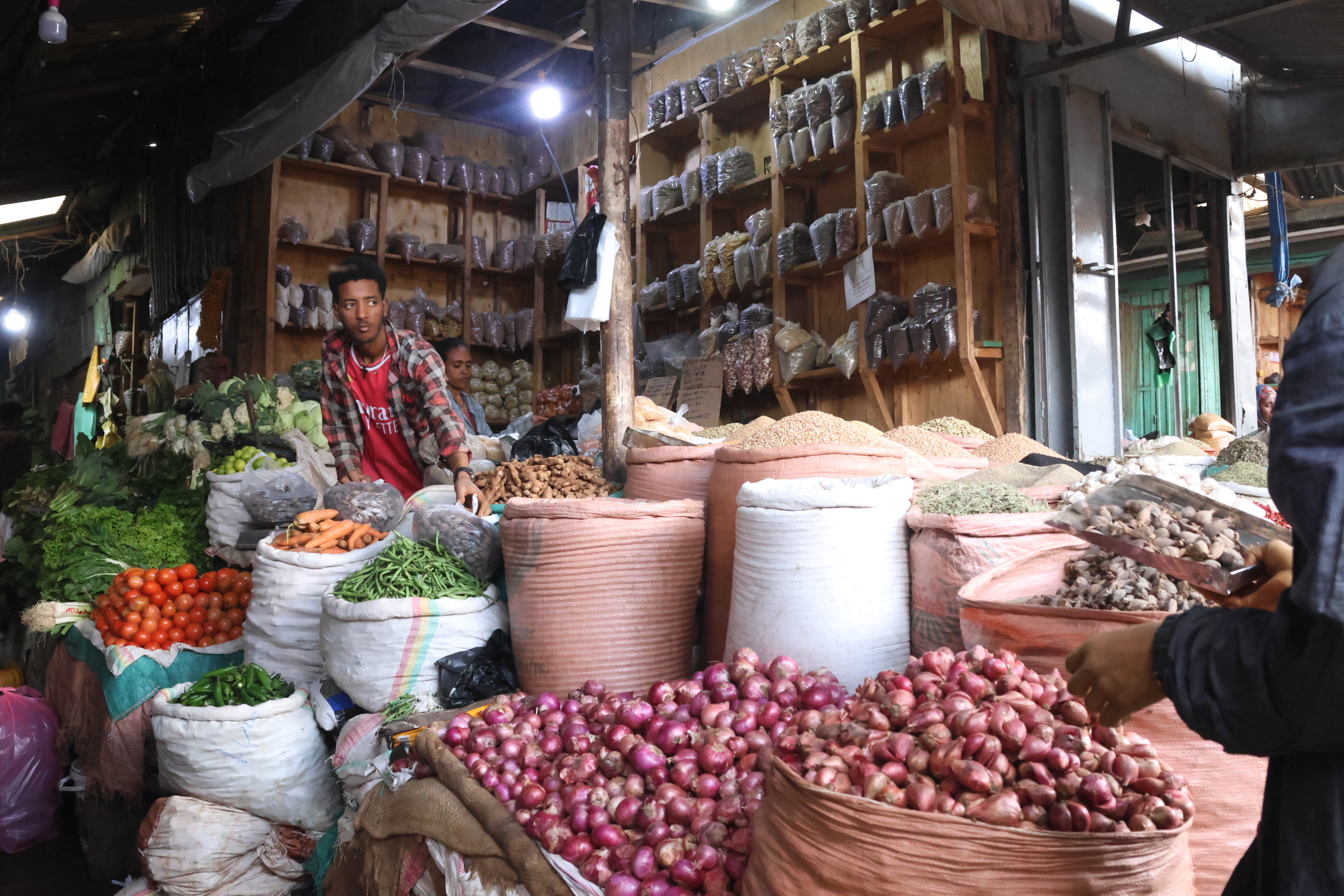
Agenda | Apr 19,2025
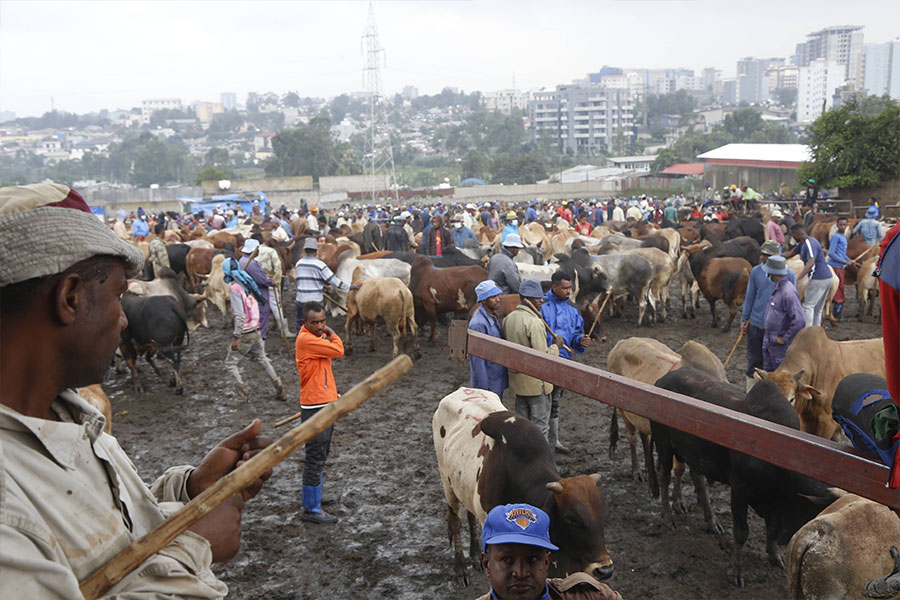
News Analysis | Sep 10,2021

Radar | Jun 20,2020

Life Matters | Aug 03,2025

Fortune News | Sep 11,2020

Dec 22 , 2024 . By TIZITA SHEWAFERAW
Charged with transforming colossal state-owned enterprises into modern and competitiv...

Aug 18 , 2024 . By AKSAH ITALO
Although predictable Yonas Zerihun's job in the ride-hailing service is not immune to...

Jul 28 , 2024 . By TIZITA SHEWAFERAW
Unhabitual, perhaps too many, Samuel Gebreyohannes, 38, used to occasionally enjoy a couple of beers at breakfast. However, he recently swit...

Jul 13 , 2024 . By AKSAH ITALO
Investors who rely on tractors, trucks, and field vehicles for commuting, transporting commodities, and f...

Oct 25 , 2025
The regulatory machinery is on overdrive. In only two years, no fewer than 35 new pro...

Oct 18 , 2025
The political establishment, notably the ruling party and its top brass, has become p...

Oct 11 , 2025
Ladislas Farago, a roving Associated Press (AP) correspondent, arrived in Ethiopia in...

Oct 4 , 2025
Eyob Tekalegn (PhD) had been in the Governor's chair for only weeks when, on Septembe...